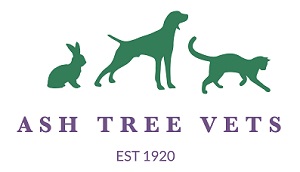Pet Behaviour
If you have any concerns about your pet’s behaviour, we may be able to help you work through these issues. The team at Ash Tree Vets can offer general advice on a number of common behavioural problems but we do not have a specialist or certified behaviourist amongst the team, therefore you might prefer, or we may recommend, that you seek advice from someone with these further qualifications or accreditations.
In this situation, we are more than happy to provide a list of local and remote (professionals accessed online) trained behaviourists for you to contact.
The advice of a certified behaviourist is strongly advised if your pet behaviour is complex or if your pet shows aggression which could potentially cause injury to yourself, a family member, a member of the public or other household pet. Certified behaviourists will often want us to rule out common medical conditions and pain before we refer you, so we may still ask to have a chat with you on the phone or ask you to bring your pet to the surgery for an examination.
If you would like us to help, please complete our Pet Behaviour Questionnaire. Once completed we will contact you to book an in-person or telephone consultation with a vet about your behavioural concerns. There will be a charge of £54.00 for this initial consultation and any follow up consults will be charged at £47.50.

